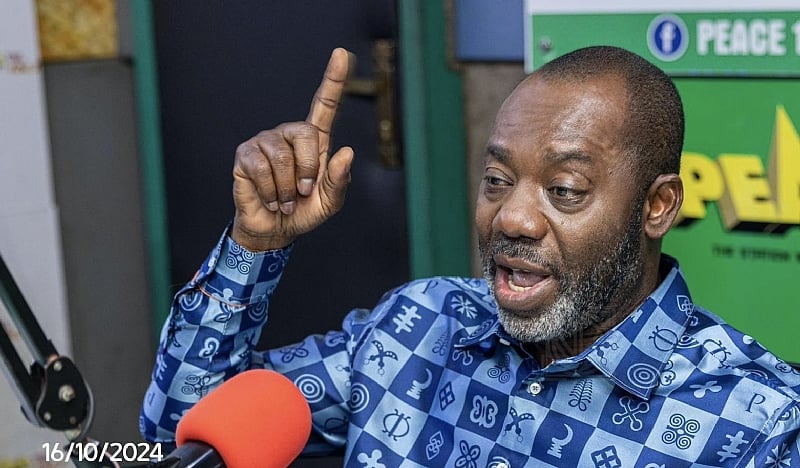Dr. Matthew Opoku Prempeh, the Vice Presidential candidate for the ruling New Patriotic Party (NPP), has publicly stated that a return to the administration of former President John Dramani Mahama would result in a resurgence of significant power outages in Ghana, known colloquially as “dumsor.” During an interview on Peace FM’s Kokrokoo morning show on October 16, Dr. Opoku Prempeh, referred to as NAPO, criticized Mahama’s tenure as marked by one of the most challenging periods for Ghana’s energy sector. He underscored that Mahama holds the distinction of being the only President to have overseen a four-year period characterized by serious energy shortages, claiming that any efforts by Mahama to “reset” the country would merely lead Ghanaians back to the dark days associated with these power outages.
Dr. Opoku Prempeh’s comments stem from his belief that the NPP government has made substantial progress in resolving the energy crisis, which he accuses the former government of mishandling. He highlighted the contrast between the current administration’s achievements in stabilizing the energy supply and what he perceives as the failures of the previous administration under Mahama. The NPP government, according to NAPO, has implemented effective solutions that not only ensured a consistent power supply but also aimed at preventing the recurrence of “dumsor,” which had caused significant hardship for Ghanaians. He articulated a strong stance that the 2024 elections present a crucial opportunity for the populace to demonstrate their desire to move the country forward rather than backtrack into previous challenges.
The Vice Presidential candidate expressed confidence that voters would recognize the advancements made under the NPP, urging them to refrain from reverting to the conditions experienced during Mahama’s presidency. He posited that the choice in the upcoming elections could signal a definitive shift toward progress rather than regression. His comments underscore an overarching theme within NPP’s campaign narrative—namely, that their governance has led to improvements in the energy sector that should not be jeopardized by a change in leadership back to the opposition National Democratic Congress (NDC).
In addition to discussing energy issues, Dr. Opoku Prempeh expressed a willingness to engage in a debate with the NDC’s Vice Presidential candidate, Professor Jane Naana Opoku-Agyemang, particularly on the topic of education. Both candidates have previously served as ministers in the education sector, setting the stage for a potentially informative discourse. NAPO is confident in the NPP’s educational record, asserting that their accomplishments surpass those of the NDC during its time in power. This assertion signals a broader goal of the NPP to promote their performance in various governance sectors, positioning themselves as the more effective choice for voters.
Furthermore, Opoku Prempeh’s remarks also serve to highlight the NPP’s strategy of emphasizing accountability and resilience in the face of past challenges. He suggests that the electorate has a responsibility to reflect on the previous administration’s performance regarding energy and education and to make informed choices to avoid repeating history. By offering to debate and substantiate his claims about the superiority of the NPP’s educational policies, NAPO is not only setting up a dialogue with the opposition but is also appealing to the electorate’s desire for transparency and accountability in governance.
In summary, Dr. Matthew Opoku Prempeh articulated a strong critique of John Mahama’s tenure, arguing that history should inform current electoral decisions in favor of the incumbent NPP. He emphasized significant achievements in the energy sector while positioning the upcoming elections as a pivotal moment for Ghanaians to reaffirm their commitment to progress. Through a combination of confidence in the NPP’s administration and a call for constructive debate with his opponent, Opoku Prempeh is framing the electoral narrative around the themes of resilience, advancement, and informed choice, setting the stage for a competitive political climate leading up to the 2024 elections.














